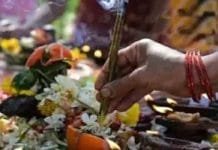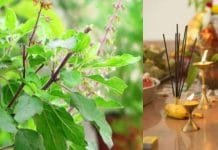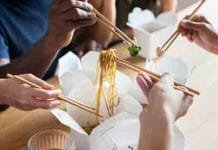
INVC NEWS
New Delhi : Pitru Paksha, a deeply revered period in Hindu tradition, commences on the 17th of September this year and will continue until the 2nd of October. This fortnight is dedicated to remembering and honoring our ancestors through rituals known as Shradh. According to the Hindu faith, it is believed that during this time, the souls of our ancestors descend to the earth, and performing specific rituals can bring peace to them. These rites are not just a means of paying respect, but they also have a profound spiritual significance.
Understanding the Importance of Pitru Paksha
Pitru Paksha is a time where Hindus express their gratitude towards their ancestors, ensuring their souls find peace in the afterlife. The Shradh rituals performed during this period are believed to liberate the souls from the cycle of life and death, allowing them to attain moksha or salvation. This belief underscores the importance of performing these rites with utmost sincerity and adherence to tradition.
During this period, it is crucial to observe certain rules and customs to ensure that the rituals are effective and the blessings of the ancestors are received. Devotees must abstain from certain foods and behaviors, as they are considered impure and can disrupt the sanctity of the rituals.
Foods to Avoid During Pitru Paksha
One of the most significant aspects of Pitru Paksha is the dietary restrictions that devotees are expected to follow. The person performing the Shradh rituals must eat only satvik food throughout the 16 days. Satvik food is pure, light, and easy to digest, typically consisting of fruits, vegetables, grains, and dairy. It is believed that consuming satvik food helps maintain a calm and pure state of mind, which is essential for performing the rituals with devotion.
Avoiding Tamasic Foods
Tamasic foods are those that are considered heavy, impure, or spiritually unsettling. During Pitru Paksha, devotees are strictly advised to avoid foods like onions, garlic, eggs, and meat. These foods are said to invoke negative energies and can hinder the peaceful passage of the ancestors’ souls. Garlic and onion, in particular, are believed to stimulate the baser instincts and are therefore avoided to maintain the spiritual sanctity of the Shradh rituals.
Prohibition of Certain Vegetables
Interestingly, certain vegetables are also avoided during Pitru Paksha. Brinjal (eggplant), tomatoes, and gourds are among the vegetables that are considered inappropriate for consumption during this period. The reasons for these restrictions are rooted in both religious beliefs and traditional practices, emphasizing the need to maintain purity during the rituals.
Guidelines for Conduct During Pitru Paksha
The conduct of the person performing the Shradh rituals is as important as the dietary restrictions. Brahmacharya, or celibacy, is strongly advised during these days. This not only refers to abstaining from sexual activities but also includes refraining from cutting hair, nails, or shaving. The idea is to remain in a state of spiritual purity and to avoid any activities that are considered distracting or impure.
Avoiding Negative Behaviors
During Pitru Paksha, it is essential to conduct oneself with patience, virtue, and integrity. Devotees are advised to avoid misbehaving with others, borrowing money, or engaging in deceitful activities. These actions are believed to invite negative karma, which can disturb the rituals and the peace of the ancestors. It is a time to reflect on one’s actions, seek forgiveness, and act with compassion towards others.
Significance of Visiting Gaya for Pind Daan
One of the most significant rituals during Pitru Paksha is the Pind Daan, a ceremonial offering of rice balls mixed with barley flour, sesame seeds, and ghee. The ritual is typically performed on the banks of the Ganges or other sacred rivers. However, Gaya, located in the state of Bihar, is considered the holiest place for performing Pind Daan.
Why Gaya Holds Special Importance
According to Hindu mythology, Lord Rama, along with his wife Sita and brother Lakshmana, performed the Pind Daan for his father, King Dasharatha, at Gaya. This act is believed to have liberated King Dasharatha’s soul, granting him peace in the afterlife. Since then, Gaya has been regarded as the most auspicious place for performing Pind Daan, especially during Pitru Paksha.
The Rituals at Gaya
Those who intend to perform Shradh rituals at Gaya are advised to start preparing at least 15 days in advance. This includes abstaining from tamasic activities and following a satvik lifestyle. It is believed that when the son arrives at Gaya for Shradh, the ancestors, who have been waiting for this moment, celebrate and bless the family. Performing Pind Daan at Gaya is considered to be one of the most effective ways to ensure the peace and salvation of one’s ancestors.
Consequences of Neglecting Pitru Paksha Rituals
Failing to observe the rituals and guidelines of Pitru Paksha can have serious consequences. It is believed that neglecting these customs can anger the ancestors, leading to what is known as Pitru Dosh. Pitru Dosh is a condition that can bring about various difficulties and obstacles in one’s life, including health issues, financial problems, and family disputes. The only way to alleviate Pitru Dosh is to perform the necessary rituals with sincerity and devotion.
The Role of Food in Maintaining Ritual Purity
During Pitru Paksha, the consumption of certain foods is strictly regulated to maintain the purity of the rituals. Rice, pulses, and green vegetables are recommended, while foods like brinjal, tomato, and gourd are to be avoided. The emphasis on consuming satvik food underscores the importance of maintaining a pure and tranquil state of mind, which is crucial for the effectiveness of the Shradh rituals.
Embracing the Spirit of Pitru Paksha
Pitru Paksha is not just a time for ritualistic observance; it is a period of deep spiritual reflection and connection with our ancestors. By following the prescribed guidelines, abstaining from certain foods, and conducting oneself with purity and integrity, devotees can ensure that their ancestors find peace and liberation. The rituals of Pitru Paksha are a way of expressing gratitude, seeking blessings, and fulfilling one’s duty towards their lineage. As we observe Pitru Paksha this year, let us do so with reverence, devotion, and a deep understanding of its significance.


















